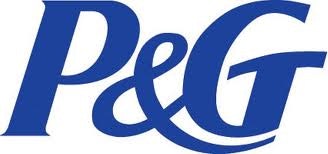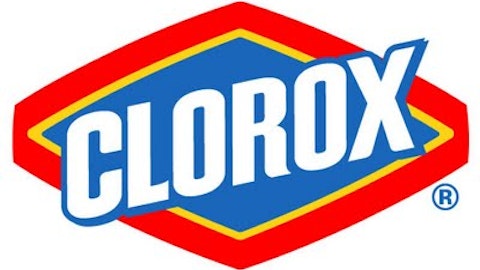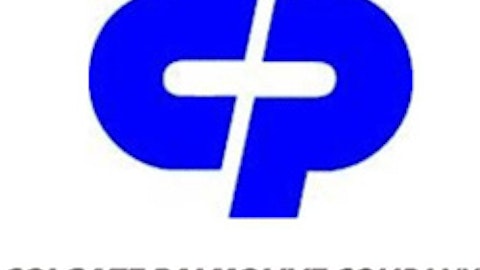Is it within the realm of possibility that Hugo Chavez is just a bit of a control freak? On Friday of last week, the colorful Venezuelan leader, currently undergoing treatment for cancer in Cuba, once again asserted his formidable command over the Venezuelan economy by remotely ordering a 32% devaluation of his country’s currency, the bolivar, against the U.S. dollar. This latest front in Chavez’s mercurial economic policy is partly intended to finance massive government debt spending incurred in the run-up to his reelection last year. It’s particularly vexing for multinationals that perennially attempt to crack the Venezuelan consumer market, despite the risks. Let’s take a look at the impact of the bolivar devaluation on four popular consumer-based companies with Venezuelan exposure:
Colgate-Palmolive Company (NYSE:CL)
Colgate’s sales and earnings were already facing pressure from Venezuela in late 2012. Economic uncertainty coupled with a labor slowdown in the company’s local Venezuelan production facility shaved a full 1.5% off Colgate’s worldwide organic sales and 50 basis points off its worldwide gross margin in the fourth quarter. When pressed by analysts during its fourth-quarter 2012 earnings call on Jan. 31, CEO Ian Cook declined to quantify the impact of a then-potential bolivar devaluation. The company had projected double-digit earnings-per-share growth in 2013, and Cook was careful to stress that “the double digit in dollar terms of guidance was absent a macroeconomic devaluation in Venezuela.”Cook also stated that if devaluation occurred, Colgate would issue related guidance “swiftly.”
True to Cook’s word, on Monday of this week following the devaluation, Colgate issued a press release stating that the company would take balance-sheet-related charges of $0.25 per share in the first quarter on its Venezuelan domiciled assets, as well as between $0.05 to $0.07 in per-share earnings reductions for each quarter of 2013. All told, these charges equal roughly $0.50 per share. Taking into account Colgate’s $5.15 earnings per share in 2012, this single event may have just wiped out the company’s goal of double-digit 2013 EPS growth.
The Clorox Company (NYSE:CLX)
Give Clorox a gold star for dealing proactively with the prospect of a bolivar slide. On releasing second-quarter 2013 earnings on Feb. 4, Clorox had already factored in a range of $0.05 to $0.10 earnings impact in its forward guidance due to what it deemed a likely bolivar devaluation. Venezuela accounts for roughly 2% of Clorox’s sales, and the devaluation effects may hit the top of the projected impact range or slightly exceed it. Of course, Clorox and all companies operating in Venezuela have some exposure to potential further devaluation this year. Frontier Strategy Group, a consultancy that predicted the currency’s weakening to the exact percentage point of 32% four months ago, expects that the devaluation could continue this year to a total of 55% to 60%. All in all, though, shareholders should be pleased that Clorox is actively forecasting and absorbing the earnings impacts in real time. This will make it easier to evaluate the rest of Clorox’s global earnings each quarter in 2013.
The Procter & Gamble Company (NYSE:PG)
Similar to Colgate and Clorox, P&G held a recent earnings call before the Feb. 8 devaluation, on Jan. 25, when it released its second-quarter 2013 earnings. However, where its peers clearly saw the bolivar’s devaluation as a probable event, and discussed it at length on their earnings calls, P&G treated devaluation as more of a possibility; one among several documented business risks. In its quarterly SEC filing, besides an obligatory currency disclosure denoting Venezuela as a high-inflation economy, the company mentioned devaluation risk almost as if in passing. On the Jan. 25 earnings call, it was similarly only mentioned once.





